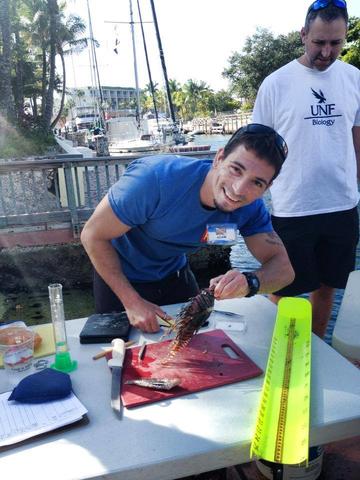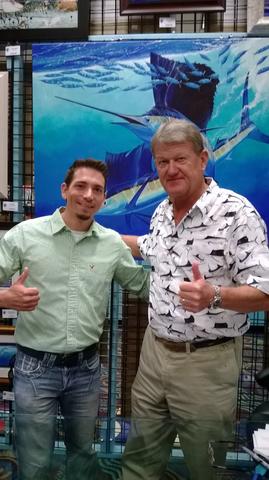The further I dive into the field of science, the more I realize that science must be applied by engaging in public interaction. This concept has been the overwhelming central theme to the week. On Tuesday night, Dr. Jim Bohnsack presented at REEF Fish and Friends lecture series about the evolution of ocean ethics. It was interesting to learn about the development of marine policy in the Florida Keys and the historical precedence that took place by implementing the first national marine park. But I remained curious of what exactly changed the public perception to support the management regulations. I’ve read many articles about how the original plans for the Sanctuary were not welcomed by the locals, but after enforcing the protection status over time, the public began to view these marine protected areas as a resource.
So, was it law enforcement or social change that created the rise of ocean ethics? I left Fish and Friends still a little curious, but just until the following day when we began preparation for the Key Largo Lionfish Locals Derby. The goal of the derby is to promote public removal of invasive lionfish, whereby teams can compete for the most, the biggest and the smallest lionfish. Seven teams registered and brought back a total of 143 lionfish.


The next day I met with the Guy Harvey Ocean Foundation at the International Miami Boat show to help with their outreach table. I had the opportunity to meet with Guy as the public cued up to have their recently bought t-shirts and prints signed by him. Watching how enthusiastic these fans were about marine conservation, I realized the mechanism of ocean ethics. It takes leaders to share their ideas in a way that is branded and recognizable by the public to create a following of supporters that will then identify with those ideas, and in turn spread them along.
